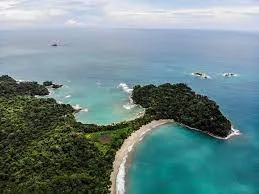In a decision that has sparked intense discussion, Costa Rica’s Ministry of Environment and Energy (MINAE) has stepped up enforcement actions against residents in protected ecological zones, especially in coastal maritime-terrestrial areas (ZMT). Reports from yesterday indicate that MINAE has issued multimillion-colón fines and prison sentences to Costa Rican citizens for living in these restricted zones, which extend 200 meters along both the Pacific and Atlantic coasts.
The ZMT was established to protect ecosystems and ensure public access, banning private residences and unapproved constructions. However, this enforcement has faced criticism for seemingly favoring foreign-owned hotels and resorts in similar areas, raising concerns about fairness and transparency in environmental governance.
The debate is particularly intense in coastal regions like Guanacaste and Puntarenas, where local families—some of whom have lived in modest homes for decades—are facing harsh penalties. For example, a family in Playa Cabuyal was fined over ₡10 million (around $20,000 USD) and ordered to leave their home, despite asserting ancestral rights to the property.
In contrast, luxury hotels, many owned by foreign investors, continue to operate in ecologically sensitive zones, often with permits that have been issued under dubious conditions. Critics, including local advocacy groups, contend that MINAE’s selective enforcement unfairly targets vulnerable Costa Ricans while allowing foreign interests to thrive.
This concern strikes a chord with both expats and tourists attracted to Costa Rica's eco-friendly image, yet they are becoming more critical of its environmental policies. Expats who own or rent properties near protected areas may encounter increased risks of legal conflicts or declines in property value. Tourists, especially those interested in sustainable travel, might doubt the genuineness of Costa Rica's green reputation when luxury developments seem to bypass regulations. A report from NATIVU last year pointed out that ambiguous ZMT regulations have historically complicated real estate transactions, urging foreigners to carefully check permits before making investments.
MINAE stands by its actions, asserting that safeguarding biodiversity is of utmost importance. In a recent press release, the ministry highlighted that illegal constructions threaten vital ecosystems, such as mangroves and turtle nesting areas. However, the opacity surrounding the permit process for hotels—often associated with corruption scandals—erodes public trust. Social media posts reflect this concern, with users demanding fair enforcement and accountability.
As Costa Rica navigates the challenge of balancing tourism growth with environmental protection, this controversy highlights the urgent need for clearer regulations and fair enforcement. Expats and tourists should remain vigilant, as changes in ZMT policies could affect coastal living and travel experiences.



